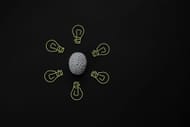There are many health benefits of niacin you should be aware of. This vitamin is mostly found in fish, nuts and chicken, and is an important part of diet.
Vegetarians and vegans are vulnerable to a deficiency of niacin in their diet. Hence, being aware of the benefits of niacin is very important. Niacin is one of eight different B vitamins that help the body function optimally. In fact, it's essential to the health of every organ and tissue in the body.
There are many benefits of niacin, such as its ability to improve cognitive performance and reduce symptoms of arthritis when taken as a supplement. However, it has the potential for severe adverse consequences if used excessively. Read on to learn about what is niacin good for, health benefits of niacin, and the side effects of niacinamide.
Health benefits of niacin

Check out the health benefits of niacin below so that you are able to answer 'is niacin good for you':
1) Improvement in blood fat level

One of the benefits of niacin is that it can help improve blood fat level by:
- increasing HDL (good) cholesterol
- reducing LDL (bad) LDL cholesterol
- reducing triglyceride level
That may translate to a decrease in heart disease risk, but studies have found no link between niacin supplementation and decrease in heart disease risk or deaths.
Niacin must be taken in extremely large amounts, often 1,500 mg or higher, to enhance blood fat level, which raises risk of unpleasant or even dangerous side effects. Taking large doses of niacin can lead to niacin flush.
Because of these factors, niacin is not generally recommended for treating high cholesterol. Its main function is to help those who have intolerance to statin medicines achieve healthier blood fat level.
2) Treatment of type 1 diabetes

Pancreatic cells responsible for producing insulin are targeted and destroyed by the immune system in people with type 1 diabetes, an autoimmune illness.
Niacin has shown promise in protecting these cells and reducing likelihood of type 1 diabetes in children at high risk for acquiring the disease. Niacin plays a more complicated role in patients with type 2 diabetes, though.
Niacin has been shown to lower cholesterol levels in people with type 2 diabetes but it also increases blood sugar level. Hence, if a type 2 diabetic person takes niacin to maintain their cholesterol level, they will have to watch their blood sugar level carefully.
New research, though, has revealed that niacin does not negatively impact blood sugar level in patients with type 2 diabetes.
3) Reduction in blood pressure

Another benefit of niacin is that it helps improve blood flow and lower blood pressure by triggering the release of prostaglandins, which are substances that cause blood vessels to dilate. As a result, niacin may be useful in the management of hypertension.
4) Improvement in skin health

Whether taken orally or given topically, niacin protects skin cells from sun damage. One of the benefits of niacin is that it has been linked to a reduced risk of developing several forms of skin cancer.
Taking 500 mg of niacinamide twice a day has been shown to reduce rate of non-melanoma skin cancer in a study involving more than 300 patients at high risk of developing skin cancer.
5) Boosting of brain function

One of the best benefits of niacin is that it helps improve brain function. Niacin is a component of the coenzymes NAD and NADP, which are essential for the brain to obtain energy and function normally. Niacin insufficiency is linked to cognitive difficulties and possibly mental disorders.
As niacin helps repair niacin-deficiency-related brain cell damage, it's effective in treating a subset of schizophrenia. Preliminary studies suggest that it may also aid in maintaining brain health for those with Alzheimer's. Unfortunately, the findings are contradictory.
Niacin is a B vitamin, one of eight that are crucial to health. Fortunately, niacin is abundant in food and can be obtained in adequate quantities by diet alone. Meat, seafood and nuts are all good sources of niacin.
However, some medical disorders, like high cholesterol, may require additional forms. Because of the side effects of niacin, it should never be taken without first discussing the consequences with a doctor.
